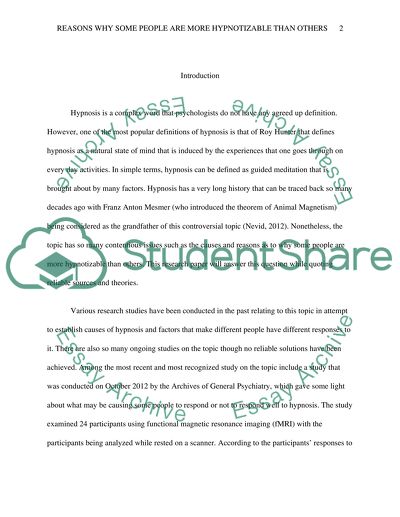Cite this document
(“Why are some people more hypnotisable than others Essay”, n.d.)
Retrieved from https://studentshare.org/psychology/1645626-why-are-some-people-more-hypnotisable-than-others
Retrieved from https://studentshare.org/psychology/1645626-why-are-some-people-more-hypnotisable-than-others
(Why Are Some People More Hypnotisable Than Others Essay)
https://studentshare.org/psychology/1645626-why-are-some-people-more-hypnotisable-than-others.
https://studentshare.org/psychology/1645626-why-are-some-people-more-hypnotisable-than-others.
“Why Are Some People More Hypnotisable Than Others Essay”, n.d. https://studentshare.org/psychology/1645626-why-are-some-people-more-hypnotisable-than-others.


